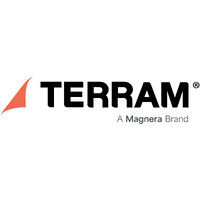
MCDONALD
McDonald is a company based out of Lurgan, United Kingdom.



McDonald is a company based out of Lurgan, United Kingdom.

As a Magnera brand, Terram is a leader in designing and manufacturing innovative geosynthetics such as geocomposites, geotextiles, and geocells. With over 50 years of expertise, Terram continuously develops value-engineered solutions that minimize environmental impact. Terram’s products are used globally in various sectors, including highways and road engineering, railway trackbed engineering, retaining structures, earth reinforcement, slopes, grass and ground reinforcement, and coastal and waterway engineering. Our product range includes geotextiles, geocomposite drains, geocells, porous pavers, and grass meshes. About Magnera: Magnera (NYSE: MAGN) is formed from the spinoff and merger of Berry’s HHNF Business with Glatfelter. The combined company serves 1,000+ customers worldwide, offering a wide range of products, including components for absorbent hygiene products, protective apparel, wipes, specialty building and construction products, and products serving the food and beverage industry. Magnera’s purpose is to better the world with new possibilities made real. For more than 160 years, the originating companies have delivered the material solutions their partners need to thrive. Through economic upheaval, global pandemics and changing end-user needs, they have consistently found ways to solve problems and exceed expectations. For more information visit www.magnera.com
Security & Compliance Standards Overview












No incidents recorded for MCDONALD in 2025.
No incidents recorded for Terram in 2025.
MCDONALD cyber incidents detection timeline including parent company and subsidiaries
Terram cyber incidents detection timeline including parent company and subsidiaries
Last 3 Security & Risk Events by Company
Angular is a development platform for building mobile and desktop web applications using TypeScript/JavaScript and other languages. Prior to versions 19.2.16, 20.3.14, and 21.0.1, there is a XSRF token leakage via protocol-relative URLs in angular HTTP clients. The vulnerability is a Credential Leak by App Logic that leads to the unauthorized disclosure of the Cross-Site Request Forgery (XSRF) token to an attacker-controlled domain. Angular's HttpClient has a built-in XSRF protection mechanism that works by checking if a request URL starts with a protocol (http:// or https://) to determine if it is cross-origin. If the URL starts with protocol-relative URL (//), it is incorrectly treated as a same-origin request, and the XSRF token is automatically added to the X-XSRF-TOKEN header. This issue has been patched in versions 19.2.16, 20.3.14, and 21.0.1. A workaround for this issue involves avoiding using protocol-relative URLs (URLs starting with //) in HttpClient requests. All backend communication URLs should be hardcoded as relative paths (starting with a single /) or fully qualified, trusted absolute URLs.
Forge (also called `node-forge`) is a native implementation of Transport Layer Security in JavaScript. An Uncontrolled Recursion vulnerability in node-forge versions 1.3.1 and below enables remote, unauthenticated attackers to craft deep ASN.1 structures that trigger unbounded recursive parsing. This leads to a Denial-of-Service (DoS) via stack exhaustion when parsing untrusted DER inputs. This issue has been patched in version 1.3.2.
Forge (also called `node-forge`) is a native implementation of Transport Layer Security in JavaScript. An Integer Overflow vulnerability in node-forge versions 1.3.1 and below enables remote, unauthenticated attackers to craft ASN.1 structures containing OIDs with oversized arcs. These arcs may be decoded as smaller, trusted OIDs due to 32-bit bitwise truncation, enabling the bypass of downstream OID-based security decisions. This issue has been patched in version 1.3.2.
Suricata is a network IDS, IPS and NSM engine developed by the OISF (Open Information Security Foundation) and the Suricata community. Prior to versions 7.0.13 and 8.0.2, working with large buffers in Lua scripts can lead to a stack overflow. Users of Lua rules and output scripts may be affected when working with large buffers. This includes a rule passing a large buffer to a Lua script. This issue has been patched in versions 7.0.13 and 8.0.2. A workaround for this issue involves disabling Lua rules and output scripts, or making sure limits, such as stream.depth.reassembly and HTTP response body limits (response-body-limit), are set to less than half the stack size.
Suricata is a network IDS, IPS and NSM engine developed by the OISF (Open Information Security Foundation) and the Suricata community. In versions from 8.0.0 to before 8.0.2, a NULL dereference can occur when the entropy keyword is used in conjunction with base64_data. This issue has been patched in version 8.0.2. A workaround involves disabling rules that use entropy in conjunction with base64_data.